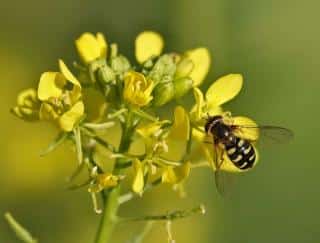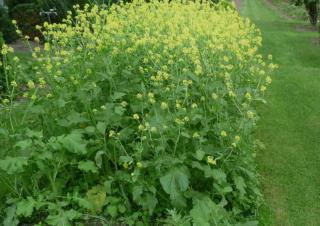

Mustard (Brassica), whether it’s black mustard, white mustard or Chinese mustard, is a bushy annual plant that is part of the Brassicaceae family. It is native to Europe, Central Asia and India.
Often considered a weed in most gardens, mustard is a condiment that is much appreciated the world over, and its leaves and seeds provide a great many health benefits and are of high therapeutic value.
 Mustard leaves are an excellent source of beta-carotene, which the body then converts into vitamin A. Vitamin A plays a part in several of the body’s essential functions: bone growth and tooth formation among others. It helps keep the skin in perfect health and protects against infections.
Mustard leaves are an excellent source of beta-carotene, which the body then converts into vitamin A. Vitamin A plays a part in several of the body’s essential functions: bone growth and tooth formation among others. It helps keep the skin in perfect health and protects against infections.
 To grow, mustard needs sun. Note also that it doesn’t like wind-scoured or shaded emplacements. If you live in an area when winters are cold, best try to grow mustard in a greenhouse or under a simple plastic tunnel greenhouse.
To grow, mustard needs sun. Note also that it doesn’t like wind-scoured or shaded emplacements. If you live in an area when winters are cold, best try to grow mustard in a greenhouse or under a simple plastic tunnel greenhouse.
When they grow more mature they’ll become an excellent, nutritious leaf vegetable which you can either steam or stir-fry in a pan.
As a spice, mustard pairs well with meats and vegetables, and adds a bite to salad dressings, sauces and mayo.
Mustard leaves contain high levels of complete protein, provitamin A, and vitamins B and C. They’re also well endowed with salts and minerals.